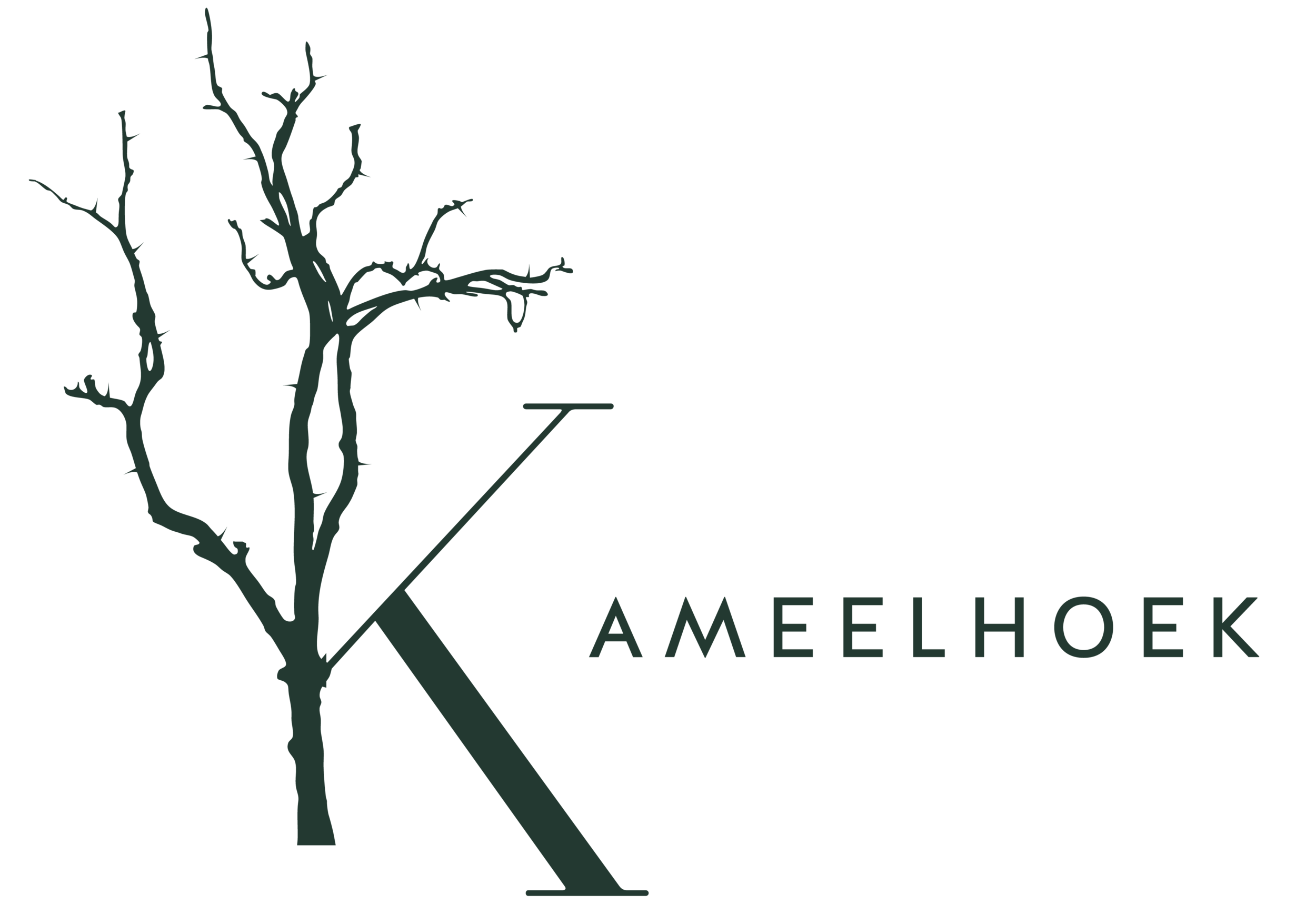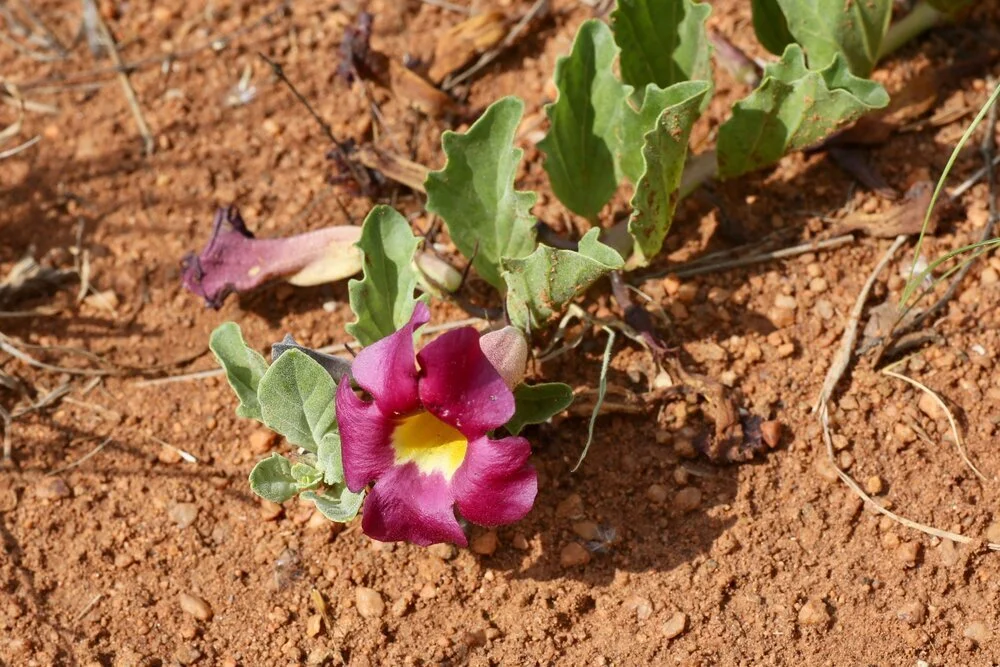Devil's Claw
Image Credit · Fairwild
Family: Pedaliaceae; Genus: Harpagophytum Species: procumbens
Early mornings on Kameelhoek capture the rare beauty of an awakening landscape unique to the Kimberley Thornveld (SVk4) region of the Northern Cape province (Mucina & Rutherford 2006). Hidden away just beyond urban limits, sheltered from the affects of human activity, lies nature’s own display of splendour. It is within the confines of this splendour that one may find many treasures, usually in the form of a seasonal appearance, or a moment’s good luck.
This was the case during an early routine patrol where seasonal bee activity across a section of the road grabbed our attention. Stopping for a moment to inspect, we were consumed by the “buzzing” of Sweat Bee (Halictidae spp.) nesting activity (Figure 1). Known to be polylectic (pollen collectors) and very active during early summer, these bees readily collect nectar and pollen as provision for their developing larvae in tunnels underground. Although busy collecting nectar and pollen, the source of their sustenance (wildflowers) could not be identified. We decided to walk a few meters into the surrounding veld (1), which to our astonishment revealed a true hidden treasure within the herbaceous (grass) layer. Known as the Devil’s Claw and a highly sought-after medicinal plant could be seen scattered within the grassy confines of a very localised area.
Figure 1. Sweat bee (Halictidae spp.)
Figure 2. Devil’s Claw (Harpagophytum procumbens)
The Devil’s Claw is an important medicinal plant protected by law in three southern African countries (Botswana, Namibia and South Africa). Its medicinal properties endorse its value and reputation as a “cure-all” product of nature. This has also reduced its population numbers through illegal harvesting over time. Its occurrence within an ecosystem should not be undervalued, as its medicinal benefit and mutualistic relationship with other organisms highlight only part of its importance.
Veld – open country covered in grass or low scrub.



